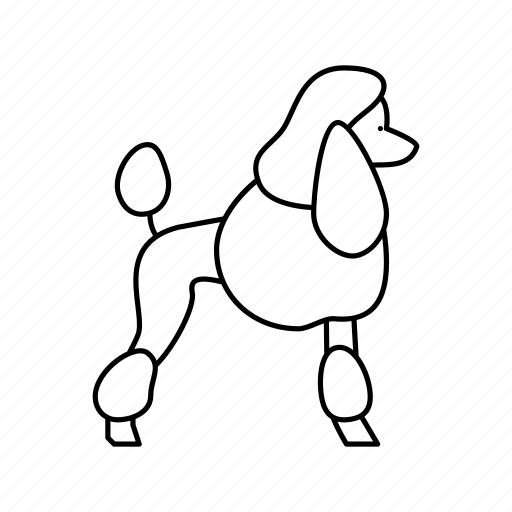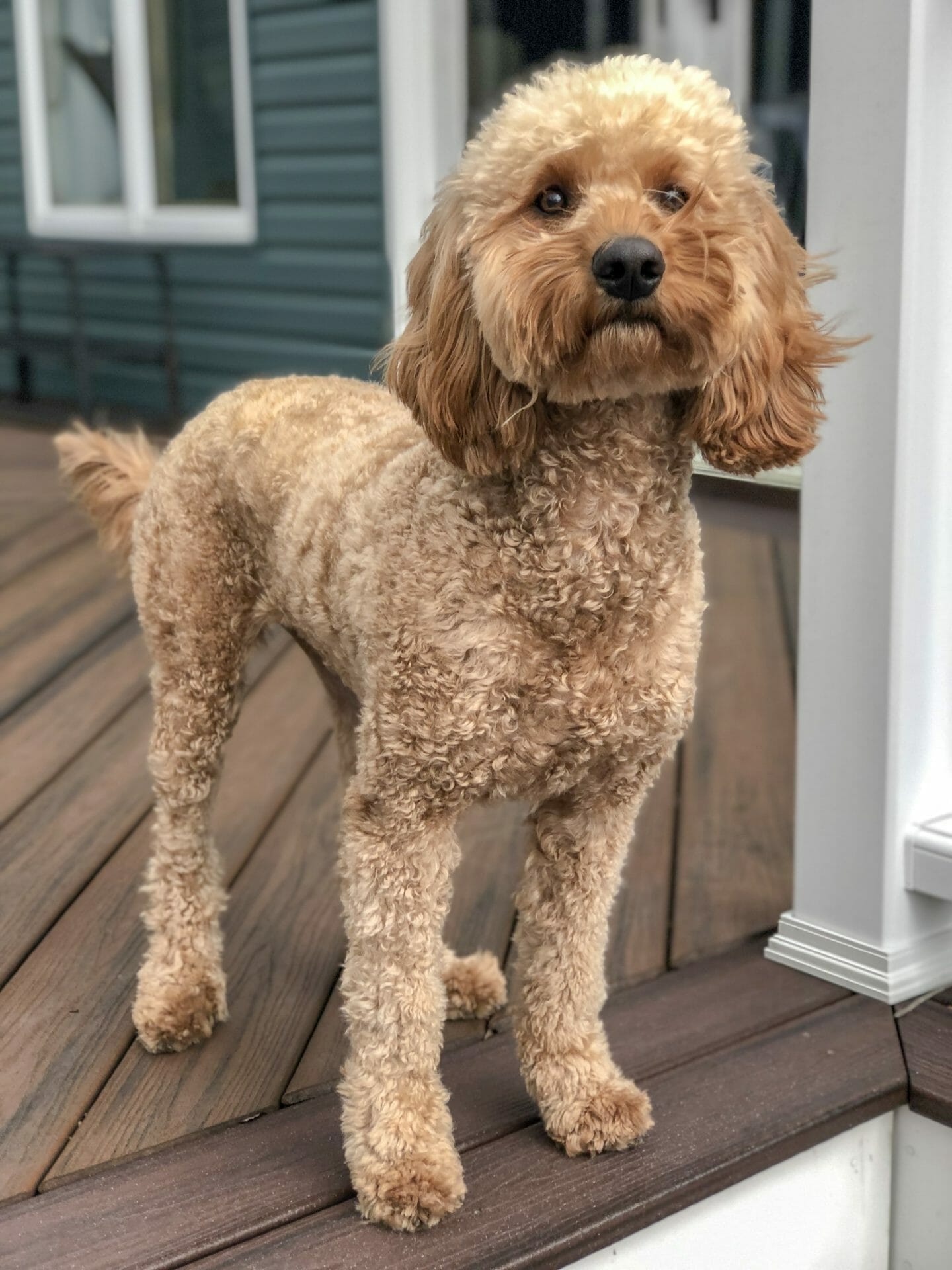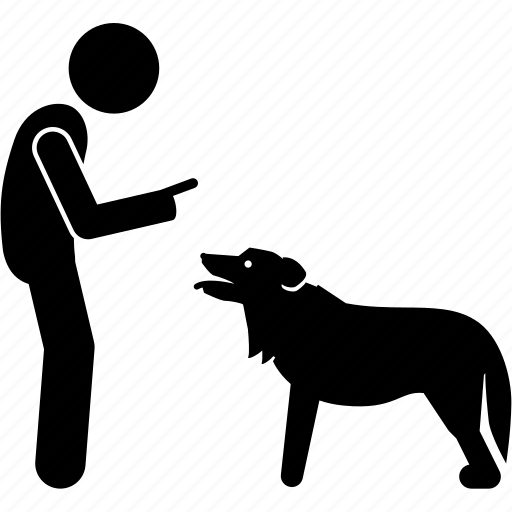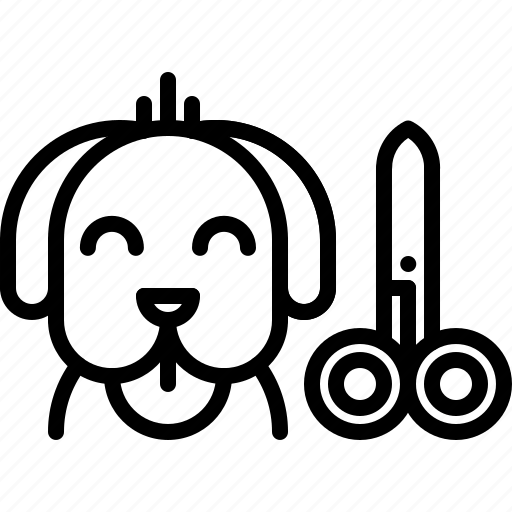Golden Doodle
The Golden Doodle is an excellent choice for a family companion or service dog due to its intelligence, loyalty, and hypoallergenic coat. They are friendly and affectionate towards people of all ages and make great additions to any home. With proper training, socialization, and exercise, Golden Doodles can live up to 15 years or more.

Standard Poodle


Golden Retriever



Lifespan:
10-15 years

Height:
18-24 inches

Weight:
25-45 pounds

Breed Overview
- The Golden Doodle is a hybrid dog bred from a Golden Retriever and Poodle cross.
- They are often referred to as designer dogs, as they were purposely bred for companionship.
- This breed is usually hypoallergenic due to their low-shedding coat.
- They are highly intelligent and easily trainable, making them great service or therapy dogs.
- Despite their size, these dogs have a moderate activity level and need plenty of exercise each day to stay healthy.
Adaptability:

environment:

Owner Experience:
This breed does best with an experienced owner who can provide consistent training and socialization from a young age. They are highly intelligent and eager to please, making them relatively easy to train.

Weather Tolerance:
Golden Doodles are quite tolerant of any type of weather, though they might need some extra protection in extreme climates such as extremely hot or cold temperatures.
Health:

Common Issues:
Health issues that can occur with this breed include hip and elbow dysplasia, epilepsy, allergies, eye problems, and ear infections.

Teeth care:
Proper care for the teeth is important for all dogs; owners of a Golden Doodle should brush their pet’s teeth at least twice per week. This will help avoid oral diseases such as gingivitis and bad breath.

Shedding:
Golden Doodles are considered low-shedding, meaning that their fur does not shed much. However, regular brushing is still recommended to keep the coat free of debris and tangle-free.
Behavior:

Trainability
Golden Doodles are highly trainable due to their intelligence and eagerness to please. They can be trained for a variety of tasks such as search and rescue, agility, therapy work, and more.

Pet Friendly:
The Golden Doodle is an extremely friendly breed that loves spending time with people. They do well in multi-pet households but should be socialized with other dogs from a young age so they learn proper behavior.

Activity Level:
Coat:

Density:
The fur of a Golden Doodle is thick and dense but still soft to the touch.

Length:
This breed’s coat can range from long to very short depending on the type of grooming that it receives.

Type:
This breed is considered a hybrid or designer dog bred specifically for companionship.
Grooming:

Bathing:

Haircut:

Brushing:
Regular brushing is recommended to remove dirt and debris from the coat, as well as to keep it tangle-free. This breed should be brushed at least twice a week.
Colors Possibilities:

Eyes:
The eyes of a Golden Doodle can range from light to dark brown depending on the parents’ genetics.

Nose:
The nose of a Golden Doodle can be black, brown, or pink depending on the parents’ genetics.

Coat:
The coat of a Golden Doodle can be variated, ranging from cream to golden to black.
- The most common health concerns for this breed include hip dysplasia, elbow dysplasia, allergies, eye problems, and ear infections.
- Regular check-ups with the veterinarian should be scheduled to make sure your Golden Doodle is healthy and up to date on vaccinations.
- Grooming is important for this breed; regular brushing will help keep their coat healthy and reduce shedding.
- Exercise is also essential for keeping this breed healthy; daily walks, and trips to the park or beach are all great activities for a Golden Doodle.
- Proper nutrition is key for any dog’s health; a balanced diet of high-quality proteins, whole grains, and vegetables should be provided in order to maintain optimal health.
- A premium kibble that contains quality proteins, complex carbohydrates, and essential fatty acids is best for this breed.
- Avoid processed foods, table scraps, and treats that contain unhealthy ingredients such as sugar, corn syrup, or fillers.
- Fresh fruits and vegetables can be added to your dog’s diet to provide additional nutrition; however avoid grapes, raisins, and onions which are toxic for dogs.
- Supplementing with fish oil is beneficial for providing healthy fats, improving skin and coat conditions, and reducing inflammation in the joints caused by arthritis.
- Always provide fresh clean water for your Golden Doodle; dehydration can lead to health issues if not managed properly.
- This breed is highly intelligent and eager to please which makes them relatively easy to train.
- Early socialization is important for Golden Doodles so they learn proper behavior around other dogs and people.
- Positive reinforcement is the best way to train this breed as it encourages good behaviors while reducing unwanted ones.
- Obedience training should begin from puppyhood; basic commands such as sit, stay, come, and leave it are essential for all dogs.
- With enough patience and consistency, your Golden Doodle will eventually be able to master complex tasks such as agility or search and rescue work.
